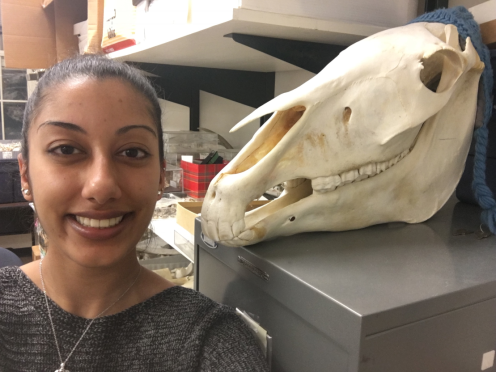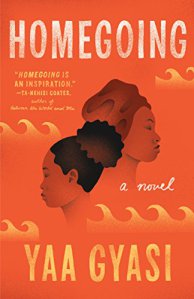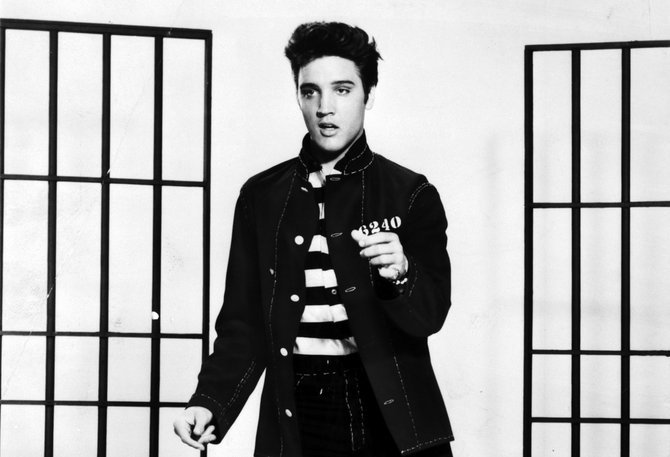Persistence and Passion for Learning:
With Srishti S., Ecology & Evolutionary Biology and Anthropology double-major
Although she’s a sophomore at University of Connecticut now, Srishti’s interest in STEM started young. In elementary school, she became fascinated by sea creatures and reptiles. She says,
“In elementary school, we had two in-school field trips, an Ocean Day and a Reptile Day. Each time, a biologist brought in organisms that corresponded with the theme. I was simply fascinated with these creatures that were so foreign to me as a second grader that I spent the years up until middle school saying I wanted to be a marine biologist.”
Eventually, her interests changed a little and expanded greatly, as they frequently do when we’re growing up.
“…Anthropology came to me in one of my frequent trips to the Museum of Science in Boston. I had naturally always gravitated towards the Green Wing of the museum which encompassed all things biology. Within the Green Wing, I found myself further fascinated by the Hall of Human Life. Standing in this exhibit hall as a 6th grader, I remember staring at three skeletons in glass cases representative of our human ancestors. A museum researcher, who had noticed my fascination, engaged me further with his knowledge of human bones. Finally, in the summer before my junior year of high school, I read a book that truly changed my life. Born to Run, by Christopher McDougall, chronicles the author’s personal experience with a remote tribe in the canyons of Mexico who, as he concluded, had an acute understanding of life. The human experience and our relation to the natural world, as I discovered as the field of anthropology and human biology, was something I have been seeking to understand since.”
Today Srishti is double-majoring, studying both Ecology & Evolutionary Biology and Anthropology. Currently, she’s also doing research in the Zooarchaeology Lab for her senior honors thesis. These are unique fields that allow her to follow her passions, as well as make a difference. Srishti explains this side of her interests best,
“Combining biology and anthropology has made me appreciate STEM in a humanities context. Both fields teach what it means to be human, how that meaning has so many variations throughout the world, and how we are so deeply connected to the natural world. It is easy to forget that humans are very much a part of the natural order of things, and we are in no way exempt from the laws of nature. This perspective is especially crucial in today’s world, where society is complex, technology is abounding, globalization is occurring, and we as humans know have the ability to alter this planet in any way we choose. One way my STEM work makes a difference is through the study of climate change. Another crucial way is in the accurate, respectful representation of native peoples throughout the world, through which we can gain new cultural perspectives on the meaning of life.”
One of my favorite things about Srishti is that she is constantly seeking to learn and understand. I admire the way that she always wants to learn more and is willing to try new things. She’s curious about the world around her. Sometimes when we’re growing up, we think that adults know everything or that if we’re really good at something, we know everything about it. That’s not true, though. People who are really good at their subject area are the people who are always ready to learn more.
Sometimes it feels frustrating when we don’t understand a problem or subject area immediately. Often, we think that if we can’t do the math problem on our first try or if the word is hard too hard, it means we’re not good at it. We start to think we’re not smart enough. Srishti reminds me that sometimes we have to work hard at new things, though. It’s also never too late to learn something new.
In fact, just a couple of years ago – after graduating high school – Srishti tried horseback riding.
“For as long as I can remember, I have loved horses, and I was the horse girl who did not actually ride horses. As I got older, I figured that I would never have the opportunity to indulge my childhood dream. Finally, for my high school graduation gift, I asked my parents for horseback riding lessons. I knew that at 18, I was an older beginner rider, and I had doubts of jumping into a brand-new experience. But I was heading to college in three months, and I took the risk of a new experience. I loved it. I loved the feeling of instability, the rush of adrenaline, and the communication between rider and horse. In the sweltering heat of summer, I once found myself pitched off by my horse, Maxine, my body landing straight into the sandy arena, rattled to the bone. But still laughing at the thrill. I was completely out of my element, and as I reflect back, I think I learned more than just horseback riding. I learned to step out of my comfort zone. I learned to take a chance and do something I knew I would love. I learned to live in the moment. And while I cannot turn back the hands of time, wishing I had started learning at an earlier age, I loved every minute of those 13 weeks.”
Not only did Srishti try something that she wasn’t sure she’d be good at, she also quite literally got back on the horse when she fell off. She kept trying, even when it was difficult or scary. Srishti has learned this lesson so many times, and she reminds me that it’s one adults need, too. We all have to practice persevering and be willing to learn from our experiences and the experiences of others that we admire. When Srishti was in 8th grade, her algebra teacher told her class a personal story about her own family. Mrs. Kilduff been going through a difficult time and had persevered through a custody battle. She came into class one day, holding a new $10 bill.
“She asked for a show of hands on who would like the 10 dollars. All hands went up. Then, she proceeded to severely crumple the bill up, throw it on the ground, and smashed the right heel of her shoe onto it. She now held up the crumpled bill, no longer clean or crisp as it had been thirty seconds ago. Again, she asked who wanted the 10 dollars.”
After hands went up, she continued saying,
“‘This is how I felt, crumpled and defeated, like the state of this 10-dollar bill,’ she motioned to the bill still in her hand. ‘No matter what you are going through, just remember this: a crumpled 10 dollars is still worth 10 dollars. Every one of you has worth, regardless of how you may feel in a moment of defeat or dejection. Always remember that.’”
Srishti kept this lesson with her, remembering that,
“She had won her custody battle, she had her daughter, she had a successful career, and she was now married to a man who loved her. I still remember sitting in that class, the tears welling in my eyes as I watched one of my favorite teachers begin to weep.”
All of those things were only possible for Mrs. Kilduff because she persevered! And now those lessons inspire her students. Her story reminds me that even when we don’t feel like things are going our way, we’re still valuable. Putting in extra effort or struggling doesn’t diminish that. We will always be valuable and we always have the potential to do amazing things.
Since she’s learned all these incredible lessons and has so many interests, what does Srishti want to do next? She’s set some fantastic goals for herself, but she’s also allowing herself flexibility because she knows that she has more opportunities on their way and she’s allowed to change her mind. Srishti says that,
“My immediate goals revolve around graduating with honors from UConn with my double-major degree. During the next two and a half years, I hope to make as many connections as I can with the faculty and students at my schools because I have learned that connections open the door to opportunities one may otherwise not have. At the same time, I also want to live in the moment and take in every experience with full appreciation. I have almost completed a year and a half of college in what felt like a blink of an eye, and I do not want miss the rest of my undergraduate years microplanning my future. Similarly, I seek to enjoy life, which is something I have been getting better at after spending years of middle and high school stressing about the future to the point where, looking back, it sometimes seems that I lived in a muted world, far removed from my friends and the experiences of high school. Career-wise, my ultimate long-term goal is to get a doctorate (PhD) degree and become a researcher/professor in a concentration of anthropology related to human biology, osteology (the study of human bones), archaeology, and/or religious studies. (I am also considering law school as another possible career path.) How I get there is completely open to the experiences and opportunities I may receive, and I am ready to see what the future holds!”
With these huge goals, it could be easy to become discouraged. Srishti knows that she’s going to have to put in a lot of work to make these things happen, but it’s worth it because she’s passionate about what she does.
“There are often moments when I find myself on depressing internet blogs about how anthropology is the worst mistake anyone could make, and that I am basically setting myself to live in a cardboard box behind a Walmart for the rest of my life. It’s a scary thought not knowing whether you are directing yourself for the success you truly want. And while it is easy to get stuck thinking about everything that can possibly go wrong, I have to remind myself of the passion and curiosity I felt when I first discovered anthropology and biology. I stay motivated every time I realize that everyone goes through the same uncertainty that I am feeling. I look around me to the professors in my department and know that they were once in my shoes, not knowing whether or not they could be successful in academia. I keep myself motivated by loving to learn, making connections, and staying focused on my passion for the field.”
I love the way she focuses on her love of learning and the people who have all been down this path before. I can’t wait to see what she’ll do in the coming years, and I’m sure we’ll all be reading about her research in the news soon!
Finally, we asked Srishti what she’d change about being a woman in STEM and the role of women in our society in general.
“This is a question I have been wrangling with for some time, and the more I grapple with the state of women today, the more I find it hard to answer. On one hand, we in the United States are quite fortunate because women in some countries are still regarded as property, subjugated to domestic roles, and are denied education, the right to vote, the right to speak their minds, etc. In that respect, I feel very lucky that my situation has been quite the opposite – I have always been encouraged to speak my opinions, get a thorough education, and experience all the other freedoms this country has to offer. However, I find there are still the subtle traps which some women succumb to. These traps come in the form of how society deems a woman should act in order to be seen as a modern, successful career woman. And while this may seem an archaic, 1950s-esque notion, a woman’s role today does not just encompass a domestic role but a career role as well. Yet somehow, society thinks that on top of balancing a career, a woman should still carry on all domestic duties: a do-it-all mentality, as my mother calls it. What I mean by do-it-all is that many women feel the pressure to have a successful career while maintaining a large social life, getting married, having children, and taking care of the household. I do think this typecast role is changing, but I wish that there weren’t undercurrents of it around me, especially some of the responses I have gotten when I tell people that I want a PhD and do not want children. To sum up this long-winded and confusing response, being a woman does not define me. I am a human being first, and I have the discretion to determine what success means to me.”
How we define our role in our lives and in our own story is such a huge question. There are so many options for women today, but Srishti is right that the options do come with their own traps and difficulties. I love the way she shared her own story and inspiration in all of these answers. I know I have a lot to think about!
Thank you for sharing, Srishti! If you’d like to read more about professionals in fields like Srishti’s, check out our letters on our role models page.

Discussion starters:
What do we need to persist at? What’s hard at first?
Can mistakes help us learn?
What does success mean to you? Does it look different for your friends?






